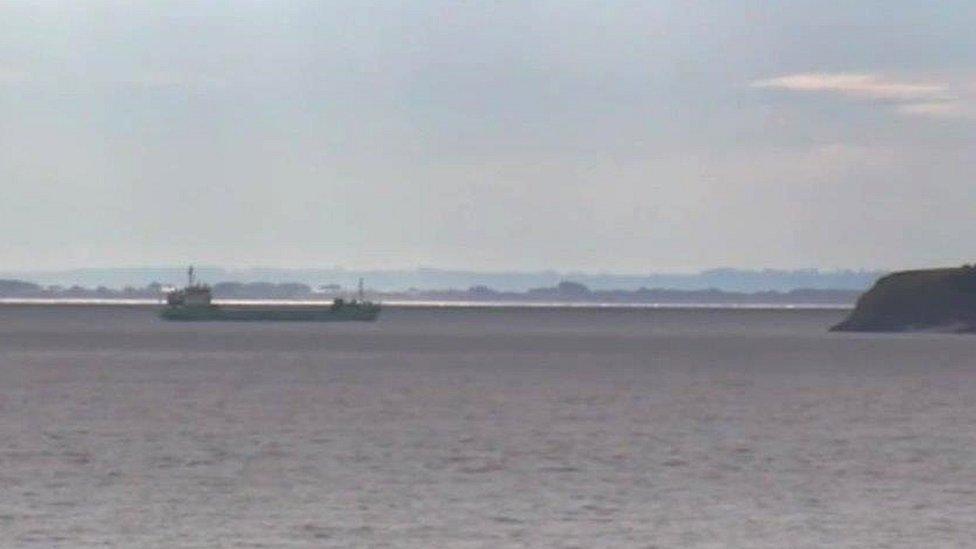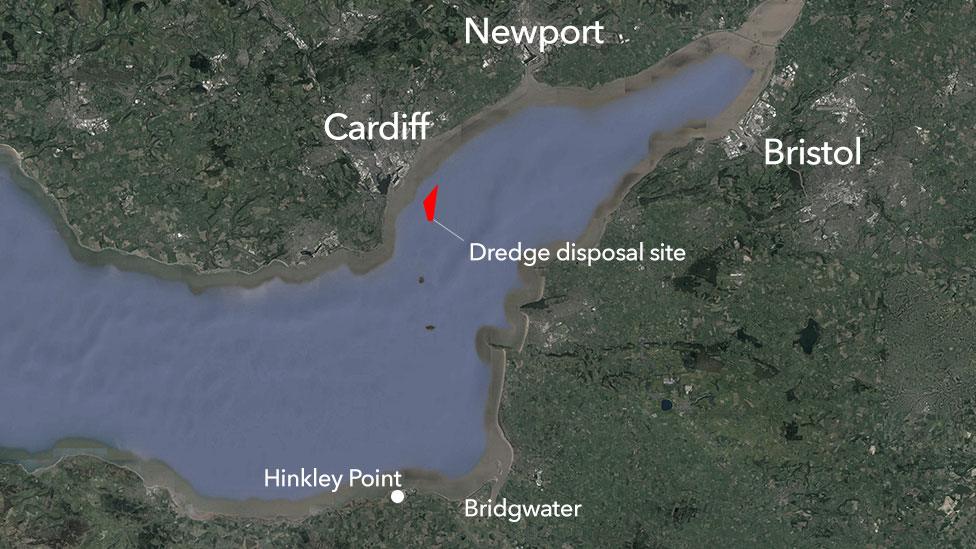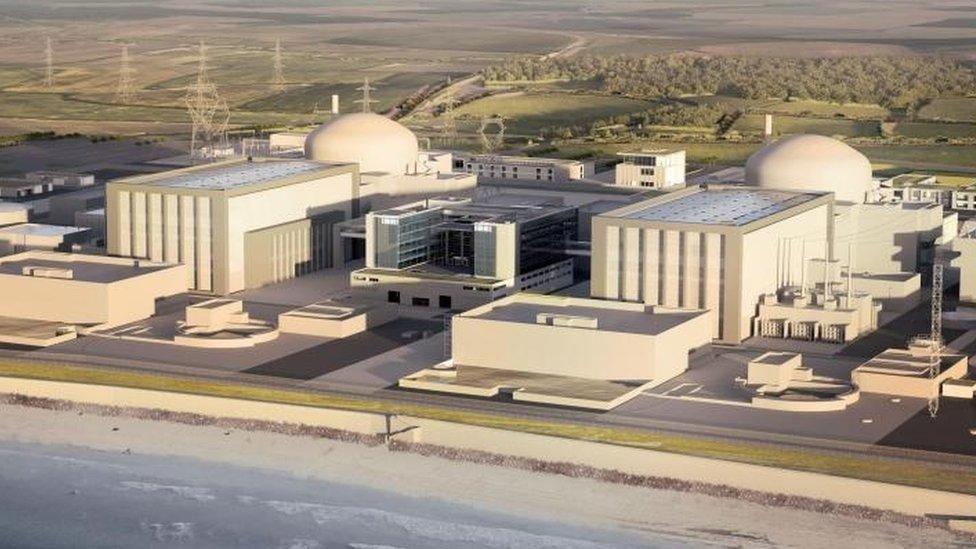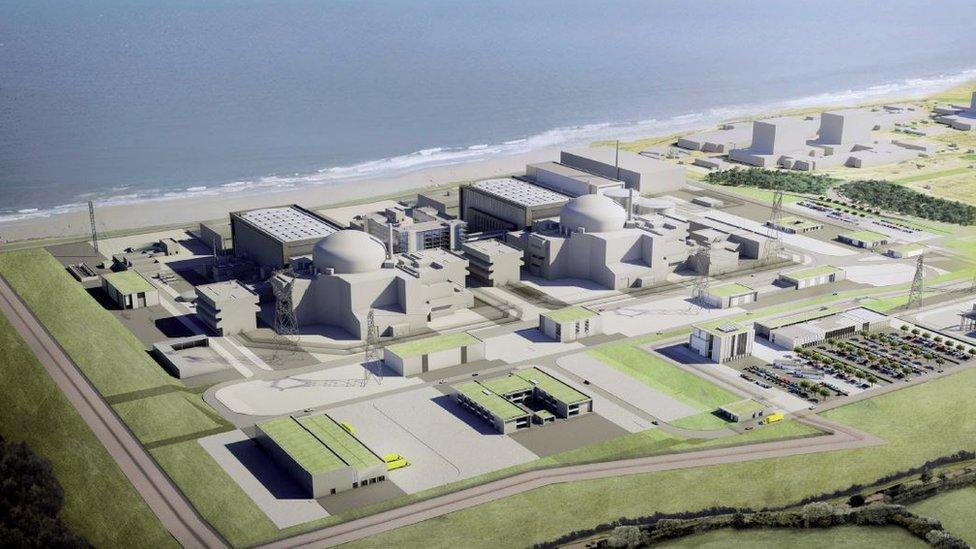Nuclear campaigners drop Hinkley C mud legal challenge
- Published

A dredger in the distance involved in the mud dumping operation off Cardiff Bay
Campaigners have withdrawn their legal challenge against mud from alongside a nuclear power site being dumped off Cardiff Bay.
The activists had requested an injunction to stop the work, which began last month.
About 300,000 tonnes is being dredged from the seabed near the Hinkley Point C building site in Somerset.
Independent AM Neil McEvoy said they agreed to discontinue the action after securing an Assembly vote.
It will come in a debate on the issue on 10 October.
The Campaign Against Hinkley Mud Dumping has argued Natural Resources Wales (NRW) failed to carry out an Environmental Impact Assessment (EIA) and said core samples tested were insufficient under international rules and did not cover all significant radioactive substances from the Hinkley plant.
But both developers EDF and NRW insist independent tests have shown the sediment poses no risk.
Because the Severn Estuary is a designated special area of conservation, the developers argue that the sediment needs to be deposited locally, so the Cardiff Grounds site - which is licensed - was most suitable.

Hundreds of thousands of people have signed online petitions calling for further testing, after campaigners raised fears the mud could be contaminated with discharges of nuclear waste from the old Hinkley A and B reactors.
EDF has argued it is an "infinitesimally small level of exposure to radiation, far below the threshold requiring a more detailed assessment or even close to approaching a radiation dose that could impact human health or the environment".
Meanwhile, the Welsh Government has refused calls for further probes, claiming that could set a dangerous precedent.


An earlier protest against the dredging
The legal action was not about testing but whether an EIA was needed for the dumping to go ahead.
'Good news'
EDF argued that the work was covered by the 2,000-page environment statement that had been carried out for the Hinkley Point C project as a whole, which made several references to the dumping.
This formed part of the main planning application for the new nuclear power station, which had been approved by the UK Government.
But the campaigners claimed a separate assessment should have been carried out specifically relating to the dumping itself.
Following a successful crowd-funding campaign, legal action was brought on behalf of anti-dumping activists by Cian Ciaran - keyboard player for the Super Furry Animals.
Campaigners Neil McEvoy and Cian Ciaran give their reaction to the case being discontinued
Mr McEvoy said the action had confirmed that no EIA covering the dumping in Cardiff Grounds existed.
He urged all AMs to support the motion to stop further dumping at the Senedd next week.
"Some Labour AMs have expressed their concern about the dumping and we'll see now if they have the courage to do the right thing and vote with their conscience," he said.
An EDF spokesman said the claimant's decision to drop the case was "good news for a project that is vital for the UK's energy future and provides work for 25 Welsh companies and 1,000 Welsh workers".
He added: "EDF did everything that it was requested to do when it applied for a licence to dredge and deposit mud in the Severn estuary.
"The mud is no different to mud found anywhere else up and down the coast and it has been thoroughly tested by independent experts who confirmed it poses no threat to human health or the environment. The sediment is not classed as radioactive under UK law."
- Published27 August 2018

- Published5 December 2017

- Published15 September 2016
